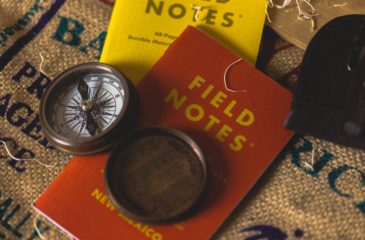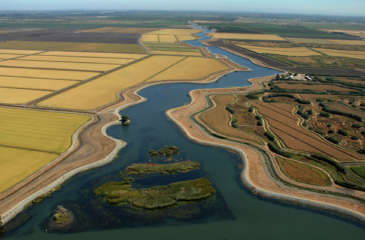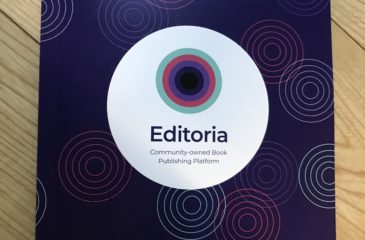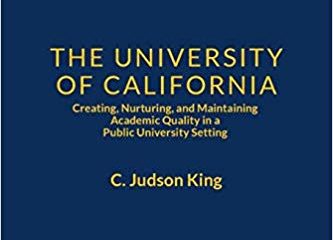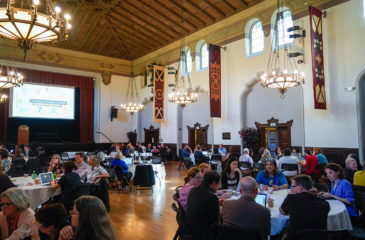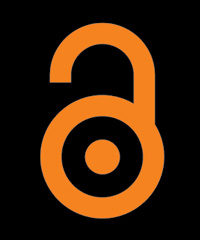UC OSC Blog
-
UC terminates subscriptions with world’s largest scientific publisher in push for open access to publicly funded research
This announcement is cross-posted from the University of California Press Room. As a leader in the global movement toward open access to publicly funded research, the University of California is taking a firm stand by deciding not to renew its subscriptions with Elsevier. Despite months of contract negotiations, Elsevier was unwilling to meet UC’s key goal: securing universal open access to UC research while containing the rapidly escalating costs associated with for-profit journals. In negotiating with Elsevier, UC aimed to accelerate the pace of scientific discovery by ensuring that research produced by UC’s 10 campuses — which accounts for nearly […]
-
Transitioning journals to open access: Guidance from and for the field
One key objective of University of California’s Office of Scholarly Communication (OSC) is to coordinate and offer educational resources related to scholarly publishing. On the OSC website, authors can find guides to copyright, open access (OA), research impact, peer review, and more. In real life, OSC members are also “out in the field” at our respective libraries and university presses, offering consultations and support for UC scholars and authors on a multitude of publishing issues. Over the past two years, we have engaged in an increasing number of discussions with journal editors interested in transitioning their journals to open access. […]
-
Academy-owned? Academic-led? Community-led? What’s at stake in the words we use to describe new publishing paradigms
Editor’s note: This blog post is cross-posted from the Library Publishing Coalition (LPC) blog and is LPC’s official contribution to Academic Led Publishing Day (ALPD), a global digital event to foster discussions about how members of the scholarly community can develop and support academic-led publishing initiatives. LPC is participating in ALPD because it presents an opportunity to have a multi-stakeholder discussion about an issue of growing importance to libraries, and to call attention to the lack of a shared vision in this critical area. Our goals in this post are to highlight some of the unresolved questions in this space and to […]
-
UC Davis–Delta Stewardship Council Journal Has Helped Inform California Water Policies for 15 Years
This article was written by Lisa Howard and originally appeared on the UC Davis Office of Research site. When the peer-reviewed journal San Francisco Estuary and Watershed Science launched fifteen years ago, the editors chose what was then a somewhat new model of scientific publication known as “open access.” At that time, most academic journal publishers kept their content behind pay walls, accessible only with expensive subscriptions that were mostly paid by institutions like universities. The sequestered academic content was a big problem when it came to research about the San Francisco Bay-Delta watershed, which includes not only the San Francisco Bay, […]
-
Open Source for Open Access: The Editoria Story So Far
This article is cross-posted from the UC Press Blog. In 2014, UC Press and the California Digital Library were awarded a grant from the Andrew W. Mellon Foundation to build a digital book production system, which has now become known as Editoria. The vision behind Editoria was to build a digital book production that would help non-profit publishers of all stripes more efficiently manage the production of monographs. Part of the motivation behind the development of Editoria was to help ease the cost burden for publishers wishing to publish open access books. At the time, UC Press had recently launched […]
-
Open Alternatives to Subscription Content
The University of California Libraries are committed to seamlessly connecting UC faculty, students, and staff with research collections. While established tools such as UC-eLinks for paywalled/subscription literature and Request Interlibrary Loan Service for unsubscribed content have been connecting readers with scholarly content for decades, a range of new tools have emerged in recent years to improve access to and discovery of both subscription and open access (OA) publications. Paywalled content requires subscriber authentication or pay-per-view for unsubscribed content, whereas OA content is freely accessible to all readers. While the majority of scholarly publications are still published behind a paywall, the […]
-
Interview with Jud King: an author’s perspective on the rewards and challenges of open access book publishing
Jud King is Provost and Senior Vice President, Emeritus of UC, as well as former Provost – Professional Schools and Colleges, Dean of the College of Chemistry, Director of the Center for Studies in Higher Education, and Professor Emeritus of Chemical and Biomolecular Engineering at Berkeley. He has recently written a book¹ on the entire University of California, exploring “the structural, policy, operational, and environmental matters that have contributed to [its] success…” Published by the Berkeley campus Center for Studies in Higher Education in January, 2018, the book is both open-access and, essentially, self-published. We asked Jud to reflect on […]
-
CP2OA: Participants from across North America converge to move the needle on open access
This article was written by Berkeley Library Communications and originally appeared on Berkeley Library News. Can we move more quickly toward an open access publishing world in which all scholarly literature is free to read? While this may seem like a daunting objective, 125 representatives of libraries, consortia, and author communities throughout North America came together this week for a two-day working forum to develop action plans for how they might reach this goal.
-
UC campuses celebrate Open Access Week 2018
This year, international Open Access Week is October 22-28. The theme, “Designing Equitable Foundations for Open Knowledge,” was chosen to reflect a scholarly system in transition, according to Nick Shockey, Director of Programs & Engagement at SPARC. “While governments, funders, universities, publishers, and scholars are increasingly adopting open policies and practices, how these are actually implemented is still in flux. As open becomes the default, all stakeholders must be intentional about designing these new, open systems to ensure that they are inclusive, equitable, and truly serve the needs of a diverse global community.” The University of California Libraries have planned […]
-
A scalable solution to a sizable problem: UCP, CDL & Coko’s journey toward Editoria
Despite the emergence, over the past few decades, of elaborate and powerful new forms of digital communication, the scholarly publishing industry is still struggling to fully realize the benefits of digital workflows. With growing demands for increased speed to publication and cost savings, publishers continue to face challenges imposed by outmoded and unwieldy systems designed for print-centric workflow. No place is this more evident than in the realm of book production. In an effort to address these challenges, University of California Press and California Digital Library have partnered with the Coko Foundation, supported by funding from the Mellon Foundation, to […]
